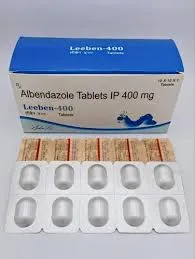- Afrikaans
- Albanian
- Amharic
- Arabic
- Armenian
- Azerbaijani
- Basque
- Belarusian
- Bengali
- Bosnian
- Bulgarian
- Catalan
- Cebuano
- Corsican
- Croatian
- Czech
- Danish
- Dutch
- English
- Esperanto
- Estonian
- Finnish
- French
- Frisian
- Galician
- Georgian
- German
- Greek
- Gujarati
- Haitian Creole
- hausa
- hawaiian
- Hebrew
- Hindi
- Miao
- Hungarian
- Icelandic
- igbo
- Indonesian
- irish
- Italian
- Japanese
- Javanese
- Kannada
- kazakh
- Khmer
- Rwandese
- Korean
- Kurdish
- Kyrgyz
- Lao
- Latin
- Latvian
- Lithuanian
- Luxembourgish
- Macedonian
- Malgashi
- Malay
- Malayalam
- Maltese
- Maori
- Marathi
- Mongolian
- Myanmar
- Nepali
- Norwegian
- Norwegian
- Occitan
- Pashto
- Persian
- Polish
- Portuguese
- Punjabi
- Romanian
- Russian
- Samoan
- Scottish Gaelic
- Serbian
- Sesotho
- Shona
- Sindhi
- Sinhala
- Slovak
- Slovenian
- Somali
- Spanish
- Sundanese
- Swahili
- Swedish
- Tagalog
- Tajik
- Tamil
- Tatar
- Telugu
- Thai
- Turkish
- Turkmen
- Ukrainian
- Urdu
- Uighur
- Uzbek
- Vietnamese
- Welsh
- Bantu
- Yiddish
- Yoruba
- Zulu
11 月 . 01, 2024 14:22 Back to list
Oxytetracycline Hydrochloride Injection for Veterinary Use in Animal Health and Treatment
Oxytetracycline Hydrochloride Injection IP Vet An Overview
Oxytetracycline hydrochloride is a broad-spectrum antibiotic that plays a vital role in veterinary medicine. It belongs to the tetracycline class of antibiotics, which are widely utilized for the treatment of various bacterial infections in animals. This particular formulation, oxytetracycline hydrochloride injection IP (Indian Pharmacopoeia), is specifically designed for use in veterinary applications, ensuring safety and efficacy for animal health.
Mechanism of Action
Oxytetracycline works by inhibiting protein synthesis in bacteria. It achieves this by binding to the 30S ribosomal subunit, preventing the attachment of aminoacyl-tRNA to the mRNA-ribosome complex. As a result, bacterial growth and reproduction are halted, allowing the animal’s immune system to combat the infection more effectively. This antibiotic is effective against a wide range of gram-positive and gram-negative bacteria, making it a versatile choice for treating infections.
Indications for Use
Oxytetracycline hydrochloride injection is indicated for various bacterial infections in animals, including respiratory infections, gastrointestinal infections, skin infections, and certain systemic infections. It is commonly used in livestock such as cattle, sheep, and pigs, as well as in companion animals like dogs and cats. Conditions such as pneumonia, pyoderma, and leptospirosis can be treated effectively with this antibiotic, contributing to improved animal health and productivity.
Dosage and Administration
oxytetracycline hydrochloride injection ip vet

The dosage of oxytetracycline varies depending on the type of animal, the severity of the infection, and the specific condition being treated. It is essential to follow veterinary guidance for dosage and administration to ensure optimal therapeutic outcomes. The injection is typically administered intramuscularly or intravenously, allowing for rapid absorption and onset of action. Care should be taken to avoid injecting into damaged tissues to minimize pain and adverse reactions.
Safety and Side Effects
While oxytetracycline hydrochloride is generally safe when administered correctly, some side effects may occur. These can include allergic reactions, gastrointestinal disturbances, or local irritation at the injection site. It is crucial to monitor animals closely after administration for any signs of adverse reactions. Furthermore, prolonged use or overuse of antibiotics can lead to antibiotic resistance, which is a growing concern in both veterinary and human medicine.
Regulatory Considerations
Veterinary practitioners must adhere to relevant regulations concerning the use of oxytetracycline. This includes adhering to withdrawal times for food animals, ensuring that treated animals do not enter the food supply until the medication has cleared their system. This is vital to ensure food safety and protect public health.
Conclusion
In conclusion, oxytetracycline hydrochloride injection IP vet is an essential tool in veterinary medicine for treating a wide array of bacterial infections. Its effectiveness, combined with responsible usage and adherence to safety protocols, can lead to significant improvements in animal health and welfare. As with any medication, careful consideration and veterinary supervision are paramount to ensuring that its benefits far outweigh the potential risks associated with its use.
-
The Power of Radix Isatidis Extract for Your Health and Wellness
NewsOct.29,2024
-
Neomycin Sulfate Soluble Powder: A Versatile Solution for Pet Health
NewsOct.29,2024
-
Lincomycin Hydrochloride Soluble Powder – The Essential Solution
NewsOct.29,2024
-
Garamycin Gentamicin Sulfate for Effective Infection Control
NewsOct.29,2024
-
Doxycycline Hyclate Soluble Powder: Your Antibiotic Needs
NewsOct.29,2024
-
Tilmicosin Premix: The Ultimate Solution for Poultry Health
NewsOct.29,2024













